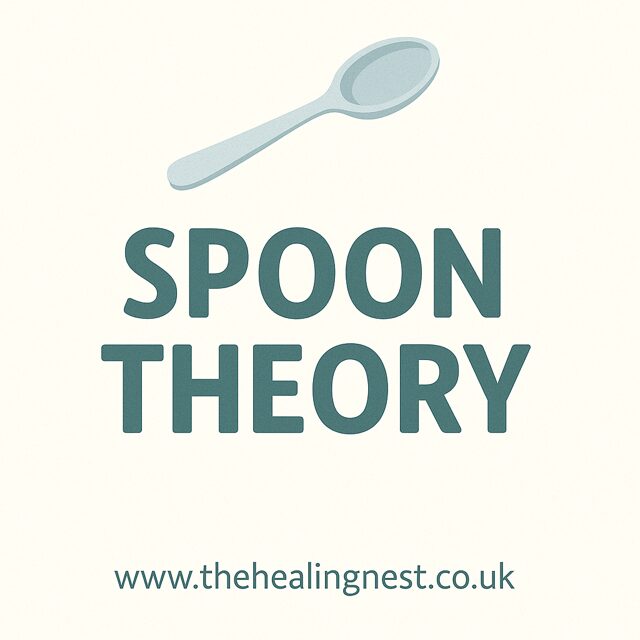When it comes to discussing chronic illness, disability, or mental health, finding the right words can be a challenge. One metaphor that has resonated deeply with many people navigating these experiences is Spoon Theory. Originally created to describe the challenges of living with chronic illness, Spoon Theory has since become a powerful framework for understanding the daily realities of living with mental health conditions as well.
What is Spoon Theory?
Spoon Theory was coined by Christine Miserandino, a writer and lupus advocate, in her 2003 essay titled “The Spoon Theory.” While explaining her experience of chronic illness to a friend, she grabbed a handful of spoons to represent units of energy. Each activity—getting out of bed, making breakfast, taking a shower—costs a “spoon.” When you’re healthy, you might not have to think about energy expenditure. But for someone with a chronic illness (or mental illness), energy is limited, and every action requires a careful choice.
In the world of Spoon Theory, spoons = units of energy. When you run out of spoons, you’re done for the day.
Applying Spoon Theory to Mental Health
While Spoon Theory began in the chronic illness community, it applies seamlessly to mental health challenges like depression, anxiety, PTSD, bipolar disorder, and more. Mental health conditions can be invisible and unpredictable, and they often drain energy in ways that others may not see or understand.
Here’s how:
- Depression may make it feel like even basic self-care—brushing your teeth, taking a shower, getting dressed—costs multiple spoons.
- Anxiety might mean you use up spoons just trying to navigate social interactions or prepare for a stressful event.
- PTSD can lead to hypervigilance or emotional triggers that drain energy quickly, even in safe environments.
- Bipolar disorder can involve energy spikes during mania, followed by intense crashes that leave you spoonless for days or weeks.
When you’re dealing with mental illness, you may wake up each day with a different number of spoons, and you often have to prioritise fiercely: “Can I afford to go to work today if it means I can’t cook dinner later?” or “Do I have enough spoons to answer that friend’s text message right now?”
Why Spoon Theory Matters
- It Gives Language to the Invisible
Mental illness is often misunderstood because it’s not always visible. Spoon Theory provides a shared language that allows people to communicate their needs and limitations without having to justify or explain them in detail. - It Validates the Experience
People with mental health conditions often feel guilt or shame for not being “productive” or “normal.” Spoon Theory says: Your energy is limited—and that’s okay. It’s a compassionate reminder that rest isn’t lazy; it’s necessary. - It Encourages Empathy
When others understand that your capacity isn’t limitless, they can adjust expectations and offer support. It opens the door for more thoughtful conversations and accommodations.
Tips for Managing Spoons with Mental Health in Mind
- Track your energy patterns: Learn what depletes or restores your spoons. This self-awareness can help you plan and pace your days.
- Prioritise ruthlessly: Decide what absolutely needs to be done and what can wait. Sometimes “good enough” is good enough.
- Communicate your spoon count: Whether it’s a partner, a friend, or a co-worker, let others know when you’re running low.
- Celebrate small wins: Some days, getting out of bed is a victory. Honour your effort, not just your output.
In Conclusion
Spoon Theory isn’t a clinical tool, but it is a deeply relatable metaphor that helps people living with mental health conditions explain their reality—and navigate it with more grace. Whether you have plenty of spoons today or are down to your last one, know that your experience is valid, your limits are real, and your energy is precious.
You’re not alone—and you don’t need a full drawer of spoons to be worthy.

